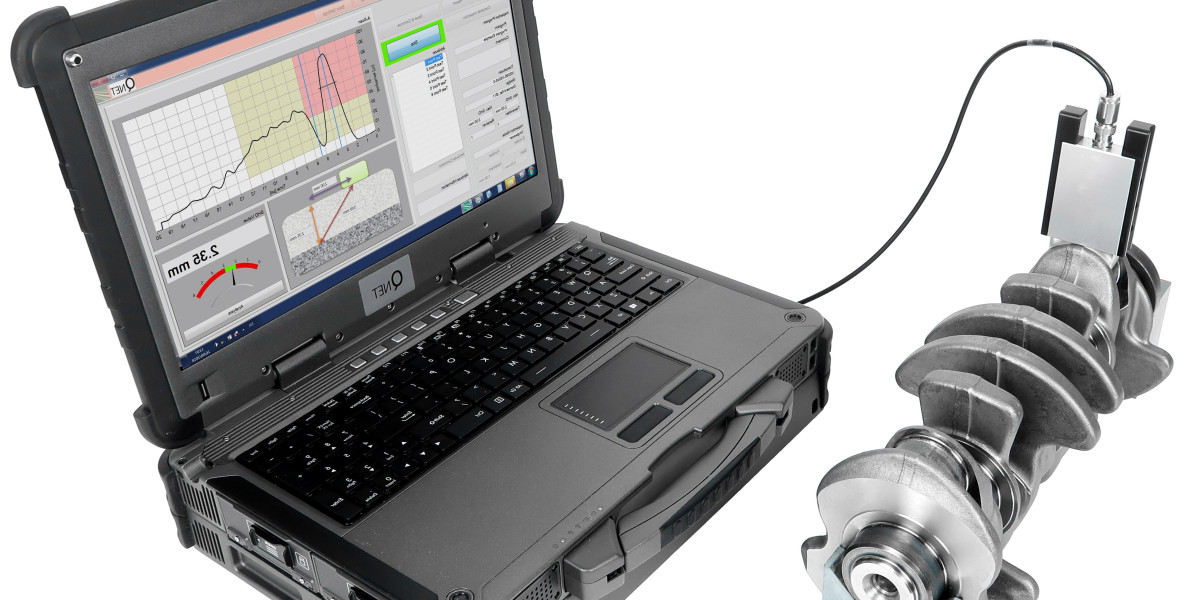In today’s industrial and manufacturing world, precision and quality control are no longer optional—they’re critical. One of the most vital aspects of quality assurance, especially in heat-treated or surface-hardened components, is the measurement of hardness case depth. Accurately measuring how deep the hardness extends beneath the surface of a metal part ensures the reliability, durability, and safety of critical components in industries like automotive, aerospace, defense, and heavy machinery.
This is where the Hardness Case Depth Tester comes into play—a tool engineered to simplify and enhance the process of measuring the depth of hardened layers in metal surfaces with accuracy, consistency, and ease.
What is Hardness Case Depth Testing?
Case hardening is a process where only the outer layer of a metal part is hardened to improve wear resistance, while the inner core remains tough and ductile. To ensure that the heat treatment has been performed correctly, manufacturers need to measure how deep the hard layer penetrates beneath the surface.
Hardness case depth testing involves measuring the depth to which a specific hardness level is achieved, often after carburizing, nitriding, or other surface-hardening treatments. This depth determines whether a component will withstand stress, pressure, and wear during real-world use.
Why is it Important?
✅ Quality Assurance: Ensures that hardened parts meet safety and performance standards.
✅ Prevents Failures: Inadequate case depth can lead to premature wear or failure in load-bearing parts.
✅ Meets Industry Standards: Case depth testing is essential to comply with ISO, ASTM, and other global standards.
✅ Optimizes Manufacturing: Accurate testing helps fine-tune heat treatment processes, saving time and cost.
How the Hardness Case Depth Tester Makes It Easy
The modern Hardness Case Depth Tester is designed with advanced technology to make depth measurement straightforward and highly accurate, even for users without extensive technical training. Here’s how:
1. Non-Destructive Testing (NDT)
Modern testers use non-destructive methods, such as UCI (Ultrasonic Contact Impedance), to analyze the hardness profile without cutting or damaging the part. This makes it ideal for finished components or in-process inspections.
2. Digital Display & User Interface
Digital testers provide real-time readings with clear displays, helping technicians see results instantly. The intuitive interface reduces manual errors and speeds up the testing process.
3. Portability
Portable models allow users to test components in the field, on the shop floor, or even on installed machinery—without the need for lab equipment or disassembly.
4. Data Storage & Connectivity
Advanced testers come with built-in memory, USB ports, or Bluetooth for data export. This helps in maintaining testing records, quality audits, and sharing results with quality departments.
5. Wide Range of Applications
From gear teeth and crankshafts to bearing surfaces and machine parts, these testers work across various shapes, materials, and sizes, making them highly versatile.
Ideal for Multiple Industries
The Hardness Case Depth Tester is widely used in:
Automobile manufacturing
Heat treatment plants
Forging and casting units
Heavy engineering
Tool and die manufacturing
Research laboratories
Its ability to deliver fast, accurate, and repeatable results makes it an essential tool in both production and R&D environments.
Conclusion
Depth measurement doesn’t have to be complicated or time-consuming. With a Hardness Case Depth Tester, you can ensure accurate, non-destructive, and efficient measurement of hardened layers—giving you confidence in the performance of your metal components.
Whether you're a production engineer, quality inspector, or lab technician, investing in a high-quality Hardness Case Depth Tester simplifies your workflow and strengthens your commitment to quality.







